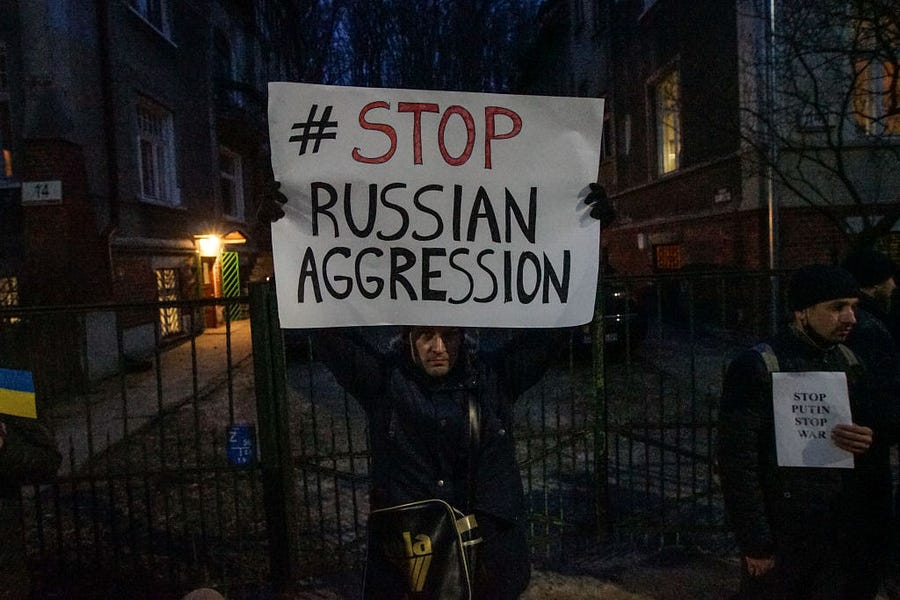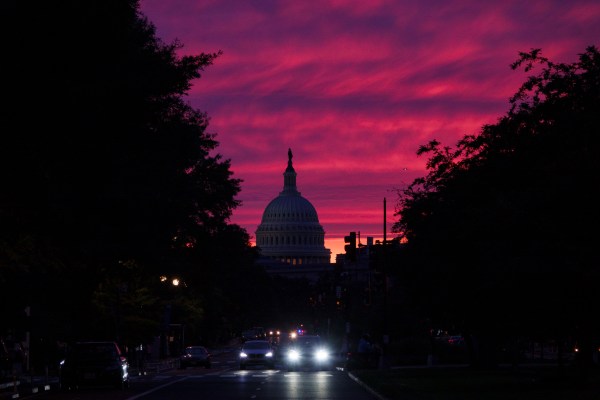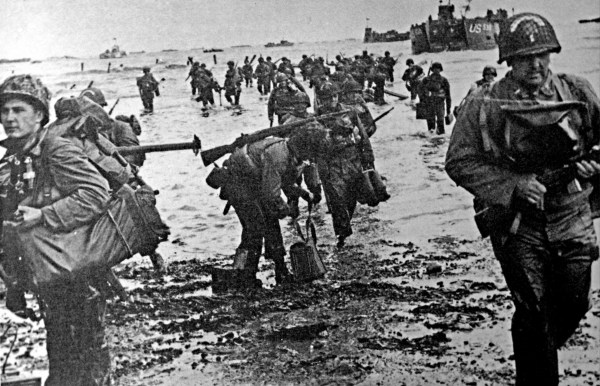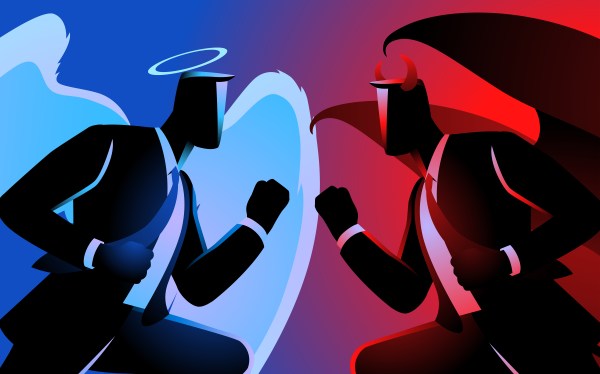NEW YORK—Clusters of young bar-goers shuffled in and out of happy hours on SoHo’s iconic MacDougal Street. The February afternoon’s rare 60 degree temperatures had drawn a Wednesday crowd. In a nondescript restaurant above a local comedy club (to which I was initially directed by a skeptical bouncer), leading human rights activists and opposition leaders from around the world gathered to discuss the global rise in authoritarianism.
Their meeting fell at a pivotal moment. The day prior, Russia deployed “peacekeeping” forces into the eastern Ukrainian territory occupied by its proxies, waking the world up to what the event’s host, Garry Kasparov, had long forewarned.
“I wrote a book in 2015 called Winter is Coming, and the subtitle actually caused some problems with the publisher. The subtitle was: ‘Why Vladimir Putin and the Enemies of the Free World Must Be Stopped,’” said Kasparov, a Russian dissident and world chess champion. “They said it resembled the Cold War. I said yes, absolutely, because winter is coming. I wish I had the foresight to prepare a second edition called Winter is Here.”
Kasparov was right. By the time the group raised champagne flutes Wednesday to toast the event’s guest of honor, NBA player and human rights activist Enes Kanter Freedom, initial rumors that Russian President Vladimir Putin would push past Ukraine’s frontline had begun to surface among attendees. Shortly after, in the wee hours in Moscow and in the midst of a UN Security Council emergency meeting, Putin appeared on state TV to declare war on Ukraine.
What followed was a full-scale onslaught, beginning with missile strikes and air raids on Ukraine’s military infrastructure and tailed by ground invasions from several staging areas, including Belarusian territory. Kyiv’s multi-front fight rages on in the early stages of an invasion that has already left more than 100 people dead.
After months of guessing games by the West, the Kremlin’s maximalist choice became abundantly clear on Thursday. So what would a maximalist response by the United States look like? Expert recommendations range from seizing Russian assets to bolstering NATO’s eastern flank to cutting Moscow out of global financial systems, but all share common end goals: to save the burgeoning democracy in Ukraine and prevent the war from spiraling into a broader global conflict.
Bill Browder, CEO of Hermitage Capital Management and prominent anti-corruption campaigner, is one of the many experts who has long implored the West to hit Putin where it hurts: his pocketbook. “Over the last 20 years, Putin has spent a lot of time accumulating a lot of money—stealing a lot of money. He’s stolen it from the Russian people,” Browder said from Manhattan. “He’s the richest man in the world, and he values money more than human life.”
In a speech on Thursday, President Joe Biden unveiled Washington’s strongest economic penalties on the Kremlin to date, including sanctions targeting Russia’s two largest financial institutions, a ban preventing Russia’s biggest companies from raising money from American and European investors, import controls on technology, and a freeze on assets belonging to additional oligarchs and their family members. The measures add to the administration’s “first tranche of sanctions” from earlier this week, which included pulling the plug on the $11 billion Nord Stream 2 pipeline and full blocking sanctions on Russian state banks. The Russian ruble dropped to a record low on Thursday, at 19 percent against the dollar.
“Putin is the aggressor. Putin chose this war. And now he and his country will bear the consequences,” Biden said, adding that the sanctions were crafted to “maximize the long-term impact on Russia and minimize the impact on the United States and allies.”
For months, the administration held back on imposing financial costs on Putin, ostensibly to retain presumed leverage over his next course of action. But some analysts think a policy of economic deterrence was doomed for failure to begin with. “I think the Kremlin was prepared for any type of sanctions,” said Anton Barbashin, co-founder and editorial director at the Russia-focused media outlet Riddle. “This is only a penalty, a price Russia—or Putin—is willing to pay.
Still others argue Biden’s hesitation had the adverse effect, signaling a lack of serious repercussions.
Some—including Ukraine’s leadership—advocate for cutting Russia out of the Society for Worldwide Interbank Financial Telecommunication, or SWIFT. That’s the platform thousands of banks worldwide use to communicate about transactions. Cutting Russia out of SWIFT would essentially isolate it from outside markets—a potentially crippling blow.
But European Union (EU) members still aren’t in agreement about cutting Russia out of SWIFT, which would have economic repercussions on their own homefronts. So for now, excluding Russia seems unlikely.
Meanwhile, some question the effectiveness of the sanctions Biden and the EU announced Thursday. Secretary of State Antony Blinken told ABC World News Tonight the sanctions are already affecting the strength of the ruble. But they’ll take time to have their full effect on Russia’s economy: “But the impact is really felt over time as, again, it spreads across the economy, about their ability to raise money, to conduct transactions around the world. That will be felt more and more and more over time.”
But time is an asset Ukraine may not have much of.
“There were very few sympathetic ears, very few, and thousands of deaf ears,” said Kasparov, another longtime advocate of sanctions. “We’re all hearing about these sanctions. You know what, after so many years of hearing that, I want to see it.” During a real-time invasion, he argued Thursday, military assistance to Ukraine—“everything but boots on the ground”—is what’s needed.
On Thursday, Ukrainian President Volodymyr Zelensky implored every citizen with combat experience to take up arms against invading forces. Experts have long pushed for sending small weapons to Ukraine, particularly given the more than 130,000 civilians who have signed up to fight in territorial defense units across the country.
Ironically, after an unprecedented influx of military assistance to Ukraine leading up to the invasion—$650 million in the last year alone—the Biden administration has largely fallen silent on the topic. The Pentagon did not respond to The Dispatch’s request for comment.
But the U.S. has shored up its defensive posture in NATO countries in Europe in recent days. Earlier this week, the Defense Department deployed 800 U.S. troops and 20 Apache attack helicopters to the Baltics and 12 Apaches to Poland. After NATO allies Poland, Estonia, Lithuania, and Latvia triggered Article 4—calling on allies to “consult together” when one party is threatened— Secretary of Defense Austin ordered the deployment of additional 7,000 U.S. troops to Europe on Thursday.
“They will deploy to Germany to reassure NATO Allies, deter Russian aggression and be prepared to support a range of requirements in the region,” a senior defense official told The Dispatch. “We expect them to depart in the coming days.” In all, a total of 90,000 American soldiers are now stationed in Europe.
Analysts have also proposed additional steps like the deployment of intermediate range missiles within firing range of Russia and providing Kyiv with intelligence and cyber support. All seem to agree that letting bold aggression by Putin go unanswered would be a moral and strategic failing.
“If you’re a dictator and you’re scared of being overthrown, you go back to the dictator’s playbook and what you try to do is create a distraction, so people aren’t angry with you—they’re angry with some foreign enemy,” Browder said. “[Putin] has an upside to what he’s doing, which is he views that this will help him stay in power. And he has a downside to what he’s doing, which is uncertain. And so in the West, we have to create some type of certainty to his downside.”







Please note that we at The Dispatch hold ourselves, our work, and our commenters to a higher standard than other places on the internet. We welcome comments that foster genuine debate or discussion—including comments critical of us or our work—but responses that include ad hominem attacks on fellow Dispatch members or are intended to stoke fear and anger may be moderated.
With your membership, you only have the ability to comment on The Morning Dispatch articles. Consider upgrading to join the conversation everywhere.